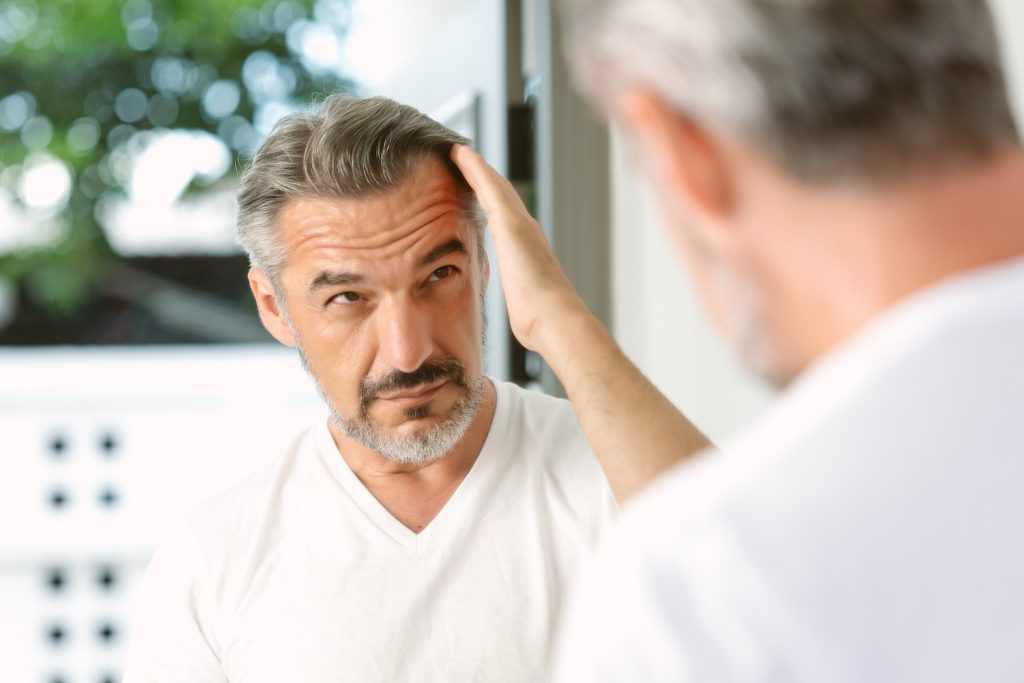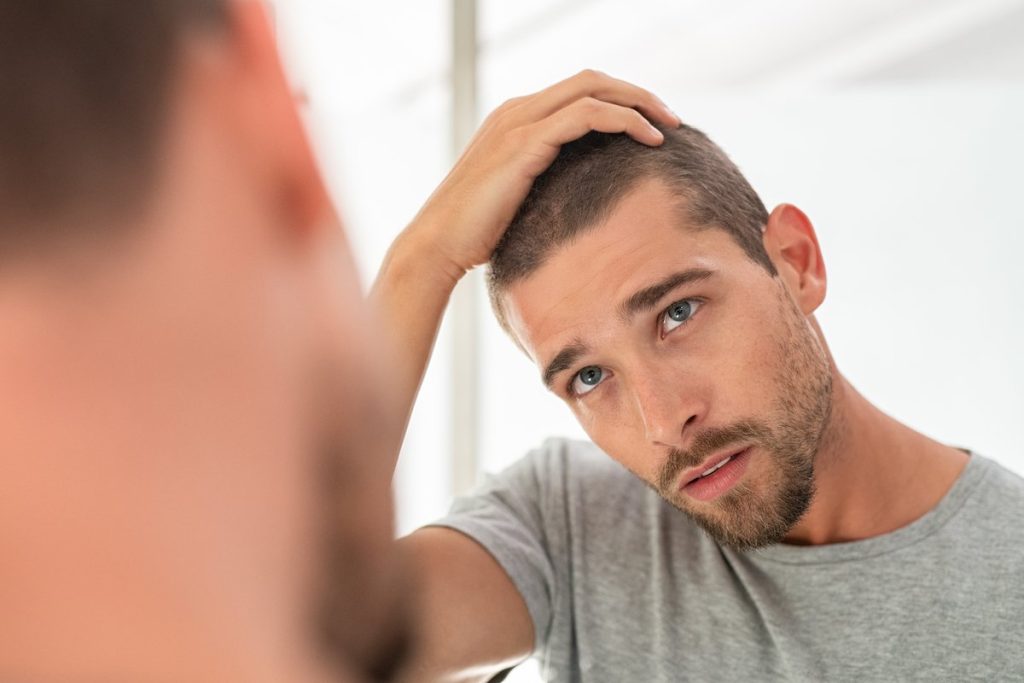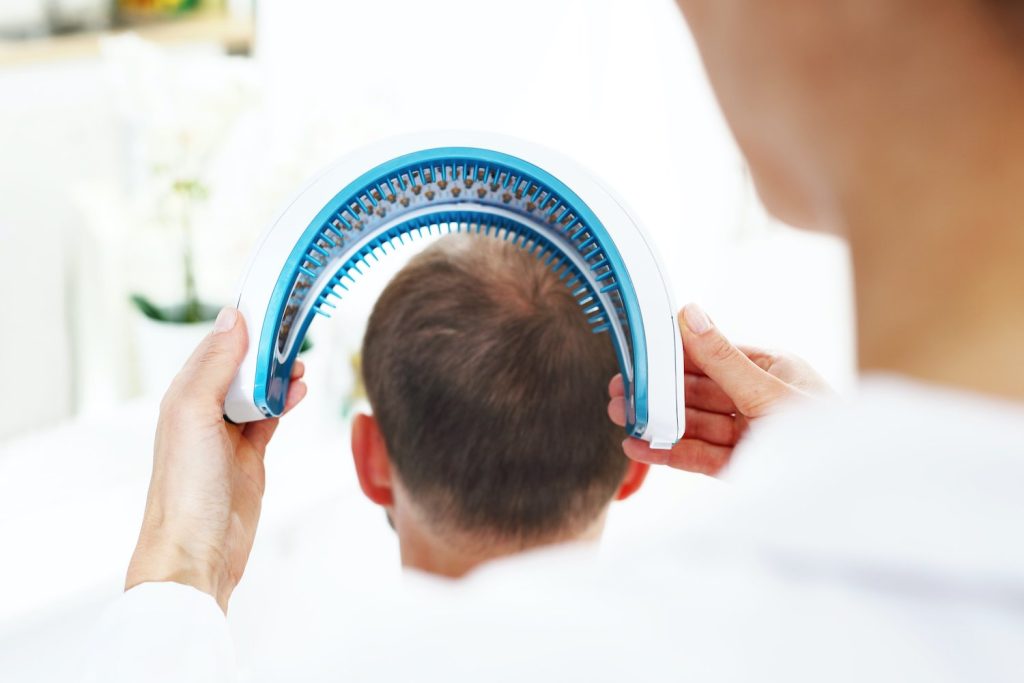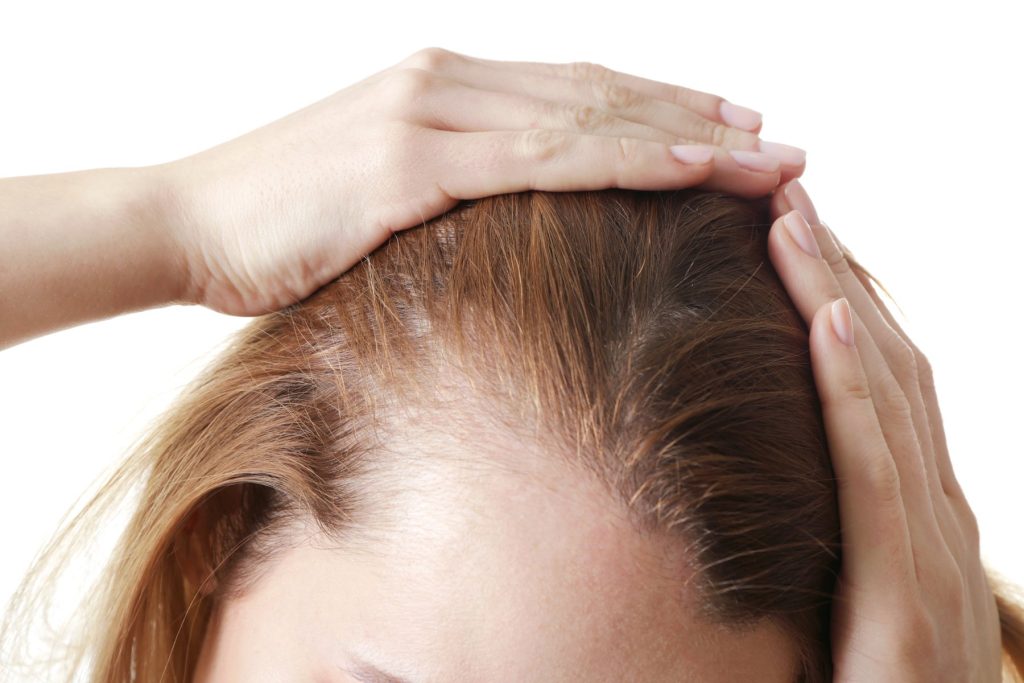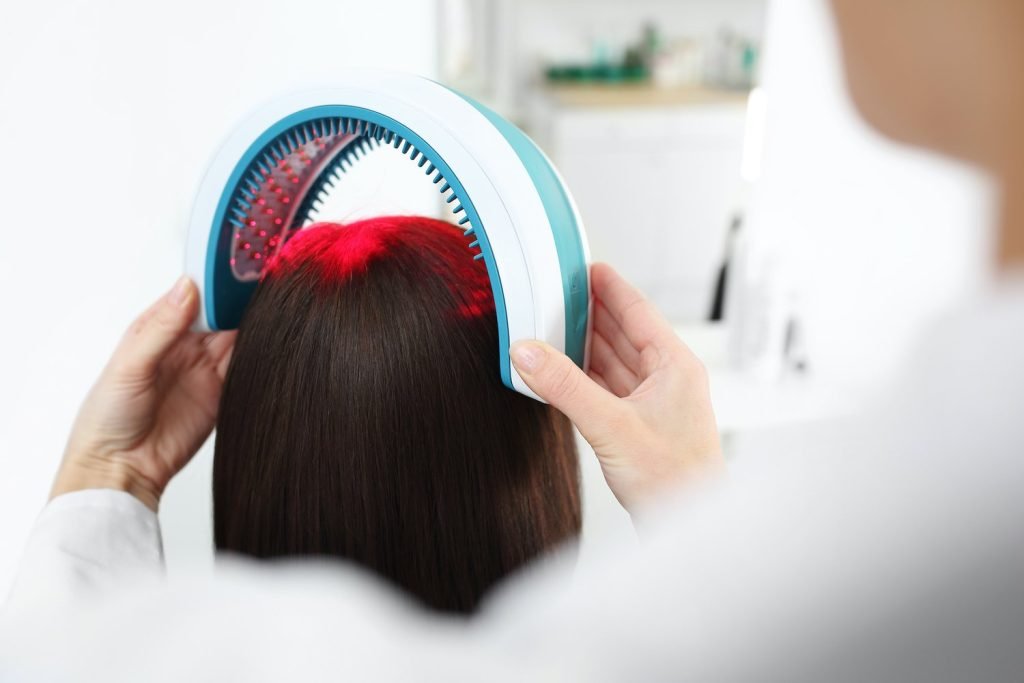- Hairline Clinic - Hair Loss Treatment in Akron and Cleveland Ohio - Schedule FREE Consultation
- 330.285.4815
- CONTACT US
Hormonal Imbalances and Hair Loss In Men
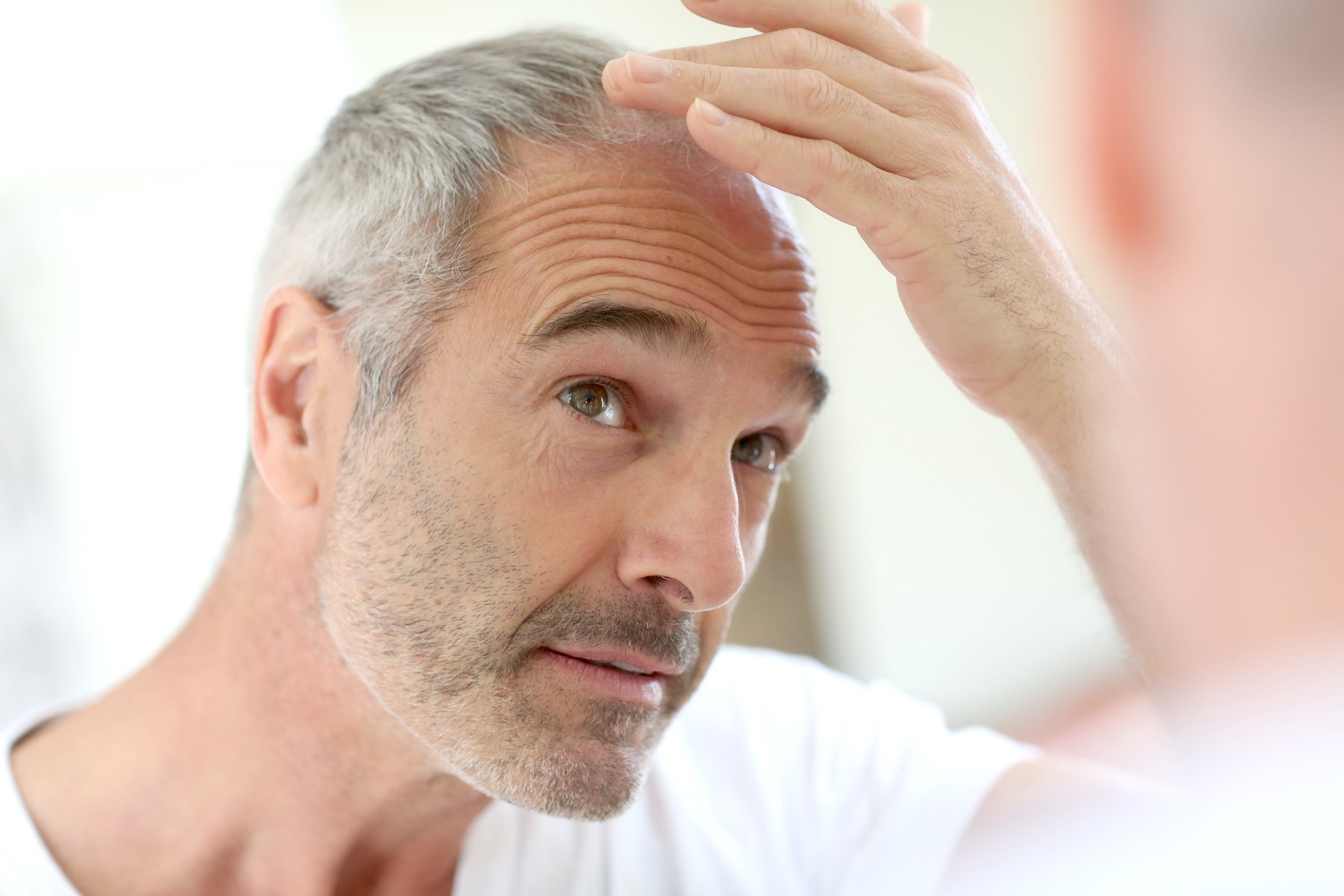
Testosterone is the hormone most closely associated with hair loss – and a few other masculine traits. But there are other hormones, and the balance can be tricky.
The relationship between how men feel – and feel about themselves – gets a lot of attention lately. This is because since the advent of testosterone supplementation – or as it is simply known, T – men are rethinking their energy levels, appearance, and libido.
Testosterone replacement therapy (TRT) is very much on the minds of men over the age of 30, particularly if they see advertising that promises increased muscle mass, improved memory, increased energy, and of course libido enhancement? But other concerns are that it might lead to hair loss conditions and costly male hair loss treatments.
In fact, even normal levels of testosterone (without TRT) have the potential to lead to hair loss. But it’s not a direct relationship – it’s when testosterone converts to dihydrotestosterone (DHT), which in turn binds to receptors in hair follicles, causing them to shrink and disrupting he hair growth cycle. This is what then leads to thinning hair.
But only a portion of the male population undergoes this conversion from T to DHT, and they do so at different ages. The differences between individuals on this are not fully understood. It might be linked to other hormonal imbalances in men that can affect hair loss, which include:
Common male pattern baldness is caused by genetically induced (androgenetic alopecia) hair loss when the follicles have increased sensitivity to DHT.
Thyroid gland imbalances, most commonly hypothyroidism, can cause hair loss when the underactive thyroid fails to properly regulate metabolism and other bodily functions – hair follicles included.
Cortisol functions as the hormone that helps control the body’s use of fats, proteins, and carbohydrates, as well as metabolic activity, in addition to suppressing inflammation, regulating blood pressure, regulating blood sugar, and ensuring a healthy wake-sleep cycle. But excess cortisol – created by acute stress, chronic stress, and traumatic stress – can affect just about the entire body. Which includes the health of one’s hair; it disrupts the hair growth cycle, leading to thinning hair.
Testosterone deficiency can also be the cause of hair loss – on the scalp, beard, and body hair. And in case the too-much and too-little matter relative to testosterone levels has your head spinning, well, this is why no one claims to have a single cure for hair loss. It’s a one-size-does-NOT-fit all situation.
So given this set of factors, it should be clear that hair loss is somewhat but not entirely in the control of the individual. Given how healthy lifestyles – moderation in diet, consistency in living actively, be it through conscious exercise, or just being someone who goes about their lives with sufficient and consistent physical engagement and reducing emotional stress – are a means to control some of these hormonal factors, it might make sense to address these factors in a comprehensive way.
We provide hair loss solutions for men suffering from hair loss due to hormonal imbalances at our hair loss treatment clinics in Cleveland and Akron Ohio.
If you are a man suffering from hair loss conditions due to hormonal imbalances, we provide industry-leading, individualized hair loss treatments and hair loss solutions to men in Cleveland and Akron, OH. Schedule a FREE confidential consultation and evaluation at our Akron Hair Loss Treatment Clinic or our Cleveland Hair Loss Treatment Clinic by calling 330.633.5225 today!
Hair Loss Treatments
Men's Hair Loss Solutions
Women's Hair Loss Solutions
Men's Hair Loss Solutions
Ready for change? Call our hair loss experts at (330) 285-4815 to schedule a FREE appointment.
HairLine Clinic is an industry leader providing individualized hair loss treatments to men and women experiencing hair loss in Akron and Cleveland, Ohio.


